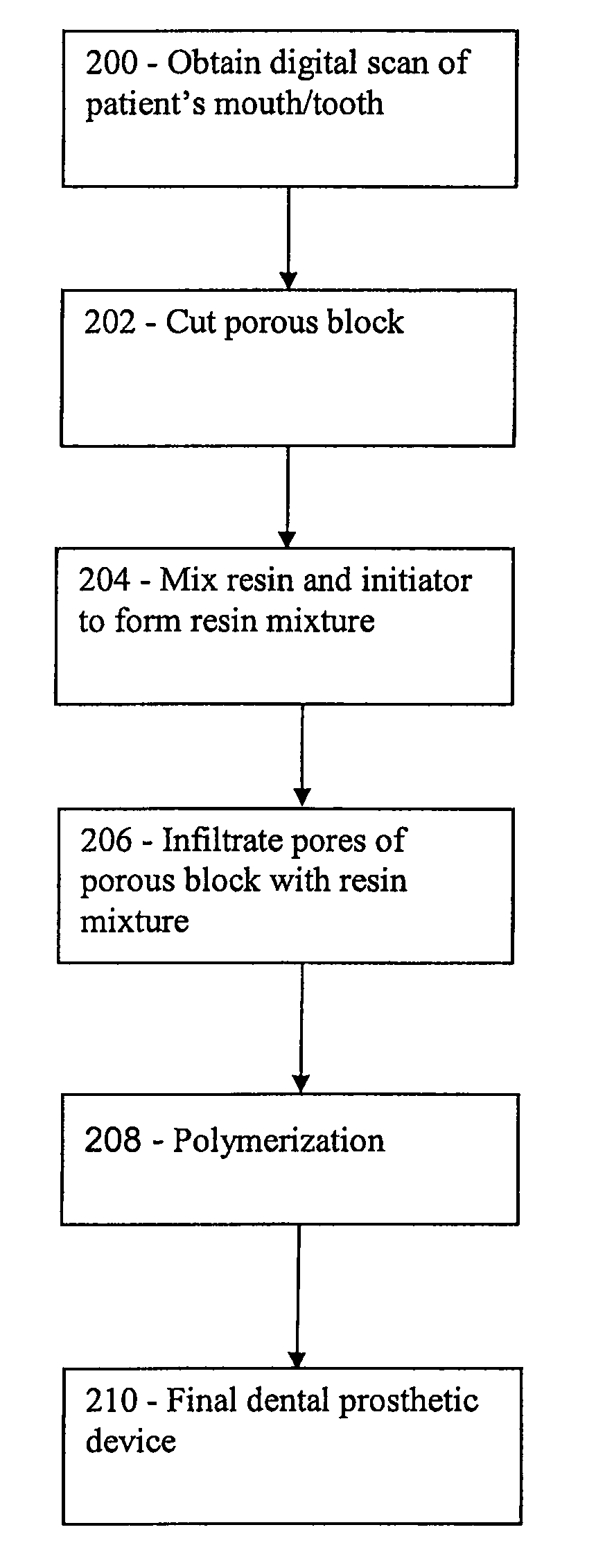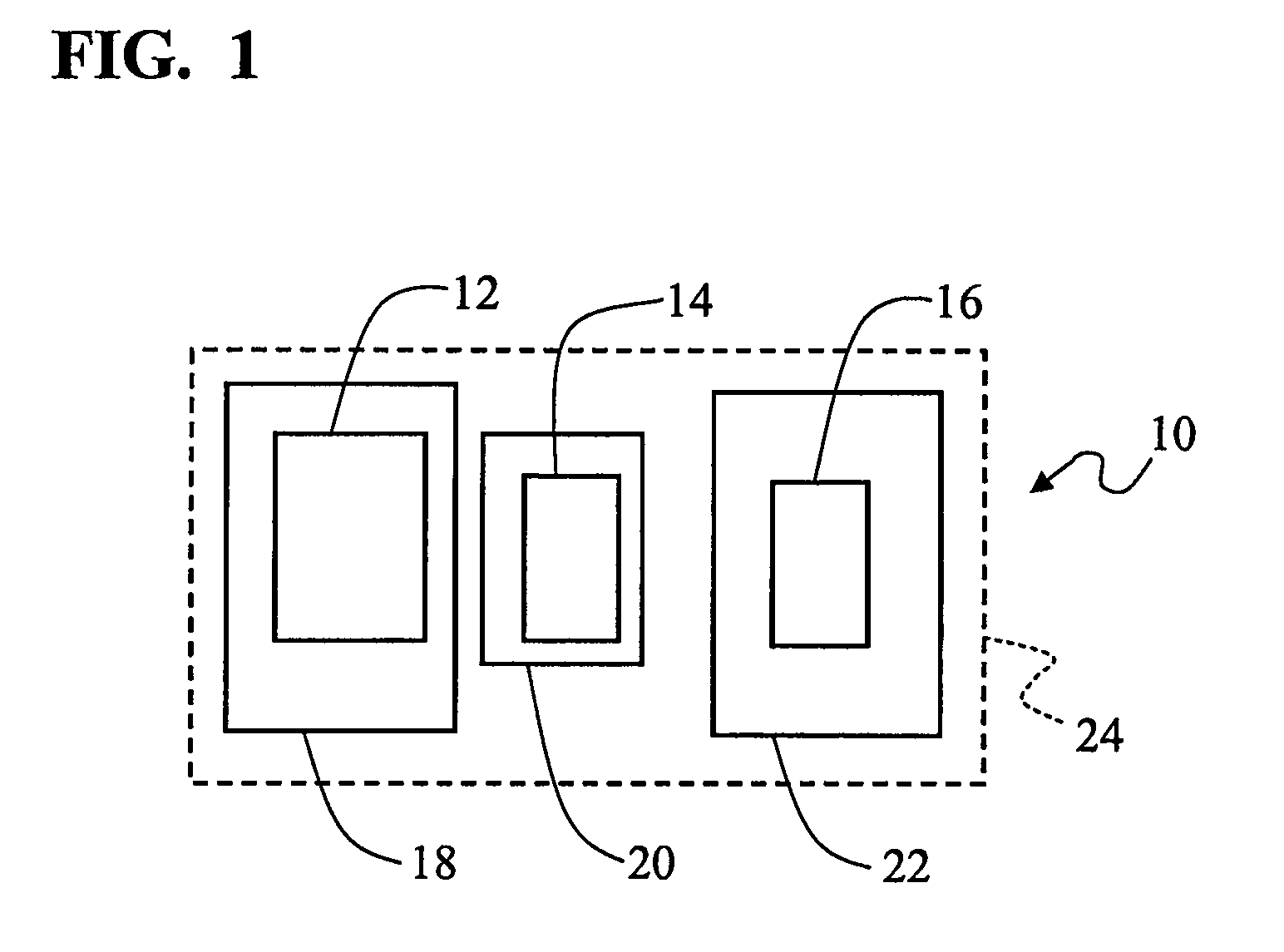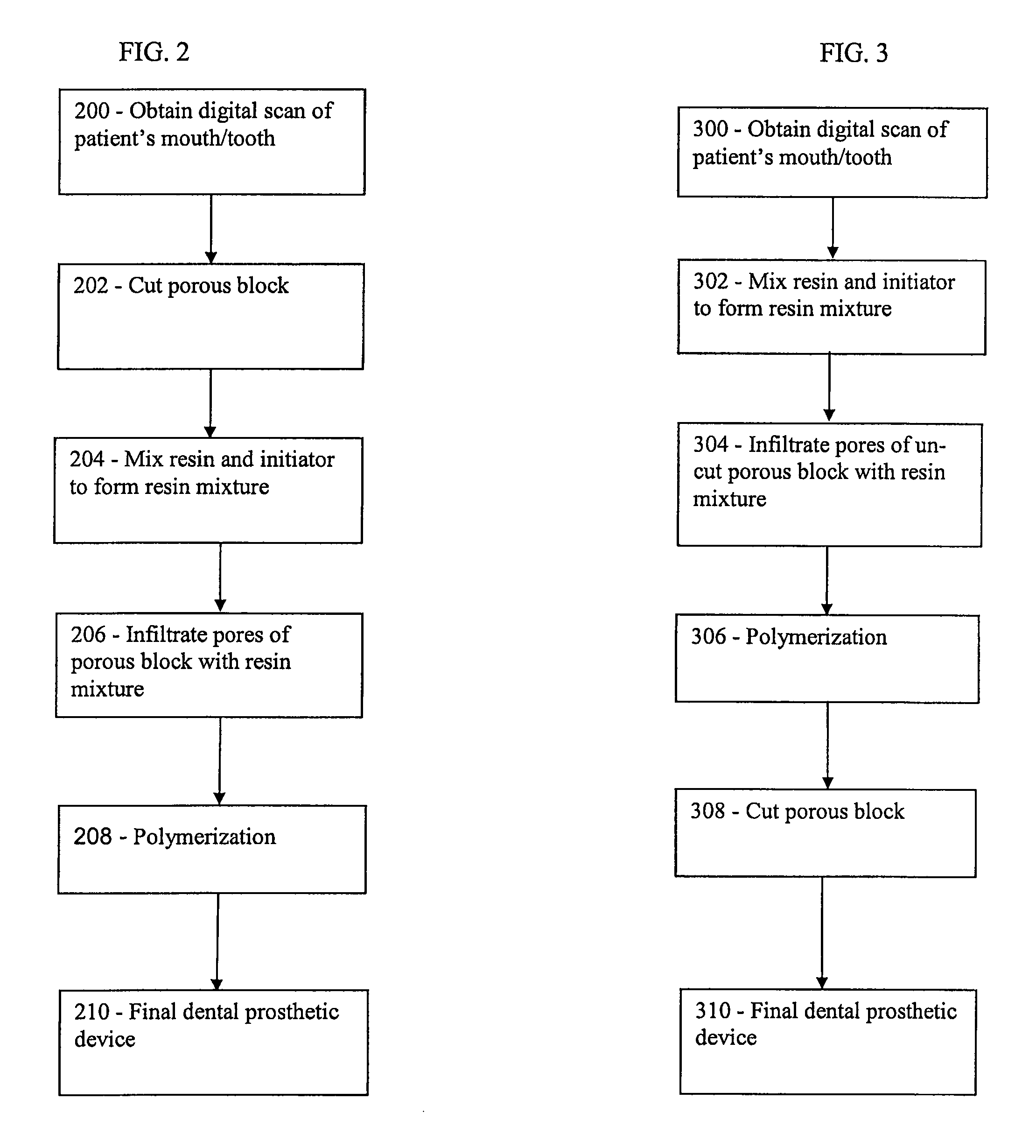Method of making a dental implant and prosthetic device
a dental implant and prosthetic device technology, applied in dental prosthetics, dental surgery, medical science, etc., can solve the problems of dental practitioners not being able to produce such a high-quality prosthetic device in-house, complex manufacturing process of dental prosthetic devices, and high risk
- Summary
- Abstract
- Description
- Claims
- Application Information
AI Technical Summary
Problems solved by technology
Method used
Image
Examples
Embodiment Construction
[0010]Referring to FIG. 1, a preparation kit 10 has a porous block 12, a thermoset polymeric resin 14, and an initiator 16 to be used in-house to create a final prosthetic device that will be cut and shaped to support a restoration or to integrally provide an artificial tooth. The prosthetic device created from the kit 10 comprises a highly durable and esthetically pleasing (i.e., tooth colored in appearance) dental device. The term “in-house” herein means that the dental device can be prepared in one location at the site of a dental procedure, such as a dental office or a dental practitioner's place of business, and does not require molds being sent to an external location or lab to be used by a third-party. Dental practitioner hereinafter will include a dentist, a dental technician, dental surgeon, a dental hygienist, or anyone employed in a dental office.
[0011]The kit 10 may have a container or package 18 such as a bag for holding the porous block 12. The resin 14 may be held in ...
PUM
 Login to View More
Login to View More Abstract
Description
Claims
Application Information
 Login to View More
Login to View More - R&D
- Intellectual Property
- Life Sciences
- Materials
- Tech Scout
- Unparalleled Data Quality
- Higher Quality Content
- 60% Fewer Hallucinations
Browse by: Latest US Patents, China's latest patents, Technical Efficacy Thesaurus, Application Domain, Technology Topic, Popular Technical Reports.
© 2025 PatSnap. All rights reserved.Legal|Privacy policy|Modern Slavery Act Transparency Statement|Sitemap|About US| Contact US: help@patsnap.com



